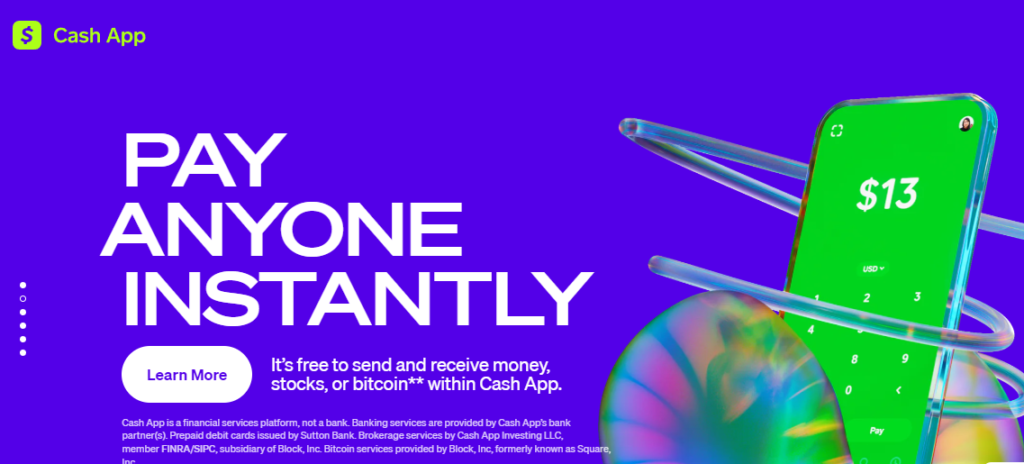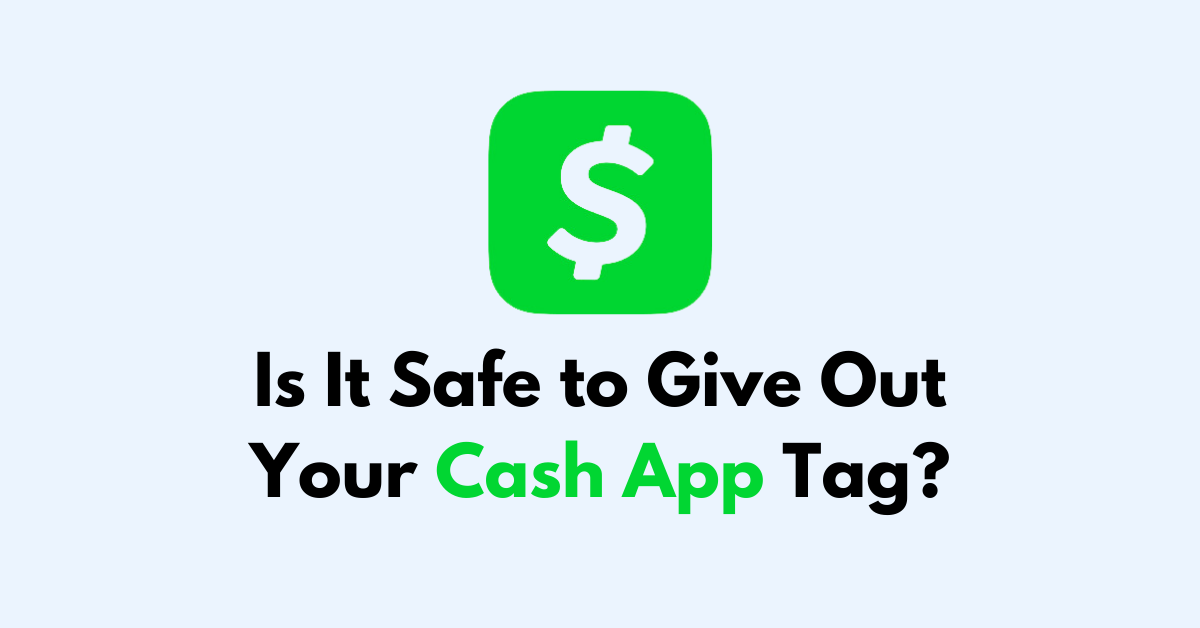Cash App has become a popular way to send and receive money quickly and efficiently.
Central to its user-friendly design is the $Cashtag, a unique identifier that allows users to perform transactions without sharing personal information like a phone number or email address.
However, as with any financial tool, there are safety considerations to keep in mind when sharing your Cash App tag.
In this article, we have discussed everything you need to know about Cashtag safety to determine whether it is safe to give out your cash app tag.

What is the $Cashtag?
A $Cashtag is essentially a username for Cash App users. It starts with a dollar sign followed by a unique combination of letters and numbers that the user creates.
This tag is what others use to send money to or request money from you within the app.
It’s a simple and memorable way to conduct transactions, which can be particularly useful for businesses or individuals receiving payments from multiple people.
What are the Things to Keep in Mind While Sharing Your $Cashtag?
- Share with Trusted Contacts: Only give your $Cashtag to people you know and trust.
- Keep Transactions Private: In the app’s privacy settings, ensure your transactions are set to private to prevent others from seeing your financial activity.
- Beware of Overpayment Scams: If someone sends you more money than they were supposed to and asks for a refund, be suspicious. It could be a scam.
- Secure Your Account: Use all available security features, such as two-factor authentication, to protect your account. You can turn on the two-factor authentication by going to the Security section of the Cash App Settings.

Why you Might Need To give out Your $Cashtag?
Giving out your Cash App tag, or $Cashtag, can be beneficial for several reasons, particularly when it comes to convenience and ease of use in financial transactions:
- Simplified Payments: Sharing your $Cashtag makes it easier for others to send you money directly through Cash App without the need for bank account details, making transactions quick and straightforward.
- Business Transactions: If you run a business, a $Cashtag can serve as a simple payment option for customers, streamlining the payment process and potentially increasing sales due to its convenience.
- Fundraising and Donations: For those raising money for a cause or seeking donations, a $Cashtag provides an accessible way for contributors to give money without complications.
- Social Media Integration: You can share your $Cashtag on social media platforms to facilitate payments for goods, and services, or even as a way for friends and followers to send you money for various reasons like gifts or shared expenses.
- Personal Branding: A $Cashtag can also be a part of your personal brand, especially if it’s customized to match your business name or personal branding, making it memorable and professional.
- Privacy: Since a $Cashtag doesn’t expose your personal information, giving it out can be safer than sharing your phone number or email address associated with your Cash App account.
What are the Risks of Giving Out $Cashtag?
While a Cash App tag ($Cashtag) can be convenient for receiving payments, there are several reasons why you might be cautious about giving it out:

- Privacy Concerns: Sharing your $Cashtag publicly can attract unwanted attention to your Cash App activity, especially if you have not set your transaction history to private.
- Target for Scammers: Publicly displaying your $Cashtag can make you a target for scammers. They could send you money and then claim it was a mistake, asking for a refund, or they might request money from you under false pretences.
- Phishing Risks: Scammers might use your $Cashtag to send phishing emails or messages, pretending to be Cash App and asking for your personal information or login credentials.
- Payment Requests from Strangers: If your $Cashtag is easily accessible, you might receive unsolicited payment requests from people you don’t know, which can be annoying or concerning.
- Overpayment Scams: A common scam involves someone sending you too much money on purpose and then asking for the excess back. The original payment might be from a stolen credit card, and when it gets charged back, you’re out of pocket for the refund you sent.
- Potential for Error: If your $Cashtag is similar to others, there’s a risk of mistaken payments, where someone intends to pay another user but sends money to you instead, leading to complications.
What Can Someone Do With Your Cash App Tag?
Your Cash App $Cashtag functions as a unique username that allows users to engage in transactions on the platform. It is linked to a public profile that displays your chosen name and $Cashtag, which can be seen by other Cash App users. This visibility is designed for convenience, allowing people to find you easily for legitimate transactions.
Here’s what someone can do with it:
- Send Money: If someone has your Cash App tag, they can easily send money to your Cash App account, which is beneficial for quick and simple transactions among friends, family, or trusted clients.
- Request Money: Someone can also use your Cash App tag to request money from you. You should always verify the identity of the requester and the legitimacy of the request before fulfilling it to avoid scams.
- Look Up Your Profile: Your $Cashtag is associated with a public-facing profile that displays your name and $Cashtag, which others can view. However, sensitive information like your bank details or transaction history remains private.
While your Cash App tag is a convenient way to transact, it’s also a potential target for scammers. They might use it to send fake payment requests or pretend to be you in phishing scams.
However, this public aspect of your $Cashtag can also be exploited by scammers. For instance:
- Impersonation Scams: Scammers could create a $Cashtag similar to yours in an attempt to deceive your contacts into sending money to the wrong account.
- Phishing Attempts: Knowing your $Cashtag may enable scammers to craft more convincing phishing messages, pretending to be Cash App support and asking for your login details or other sensitive information.
- Payment Requests: Scammers may send you payment requests with seemingly legitimate reasons, but these are often attempts to defraud you. Always confirm the identity of the requester through separate communication channels before sending money.
- Money Flipping Scams: Scammers might promise to increase your money if you send them a certain amount first. They often use social media to advertise these scams, using random $Cashtags they find, which could include yours.
